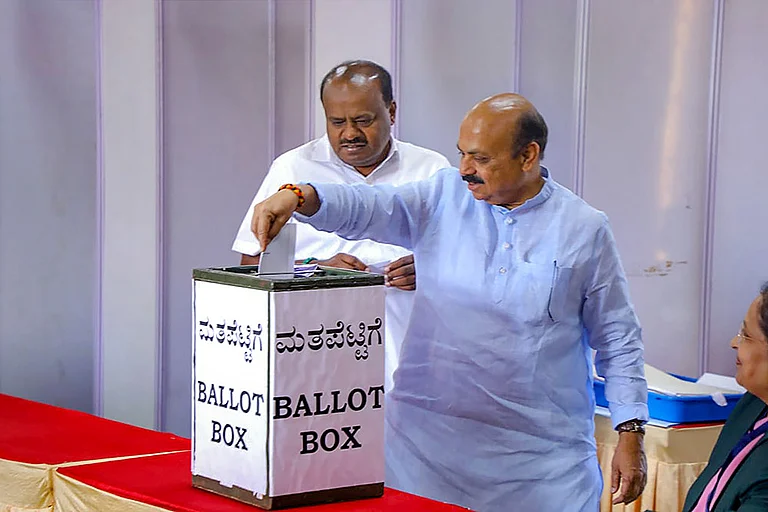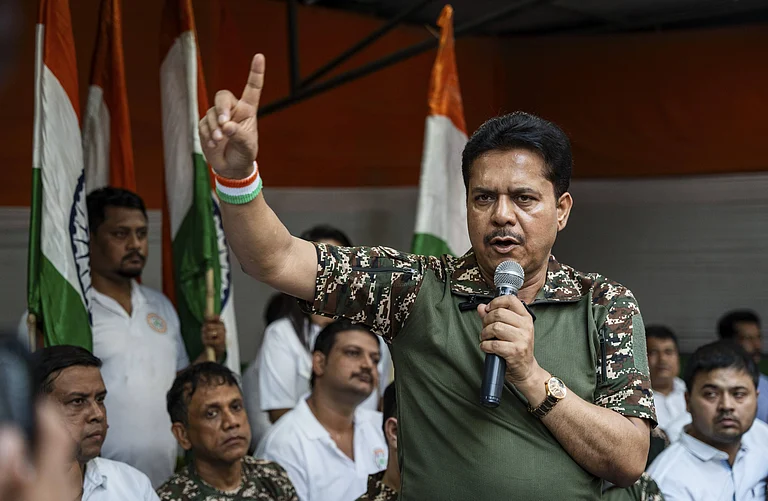The dates are in, the stage is set. The first batch of Indian voters will hit the polls on April 19 as the nation gears up to elect its next government in the 2024 Lok Sabha elections.
In a press conference on Saturday, the Election Commission of India, consisting of Chief Election Commissioner Rajiv Kumar and the newly appointed Election Commissioners Sukhbir Singh Sandhu and Gyanesh Kumar, released the election schedule, declaring that the polls will take place in seven phases. The polling will go on till June 1 and the results will be out on June 4.
According to Rajiv Kumar, 96.8 crore people are eligible to cast a vote in the upcoming polls at over 12 lakh polling stations across the nation.
Where do political parties stand?
As the elections approach, Modi-led BJP is cruising ahead with a promise of 370 seats this term while its opposition, the INDIA bloc is still to find its footing. The alliance which during its inception was being promoted as a united one has recently had its internal divisions exposed. From Congress members leaving the grand old party in hordes to inconclusive seat-sharing talks, the bloc has faced a path fraught with challenges.
The alliance with the Samajwadi Party in UP which was on the brink of collapse, could only be salvaged after numerous rounds of negotiations leading to Congress securing 17 seats, while SP retaining the remaining 63. However, in West Bengal, any hope of seat sharing with the Trinamool Congress has been dashed, as TMC released its list fielding candidates in all of its 42 constituencies.
This election season has been one of many switches and U-turns with one of the first being Nitish Kumar, the master of switches, who joined hands with the NDA just a year after his "would rather die than join BJP '' remark. Jayant Chaudhary-led Rashtriya Lok Dal (RLD) was another political party to depart the INDIA bloc and join hands with BJP-led NDA. RLD has a strong-hold in western Uttar Pradesh.
Several Congress leaders, including Ashok Chavan, Milind Deora, Baba Siddique, Rajendra Yadav, Lal Chand Kataria, and Suresh Pachouri, have left the grand old party to join BJP, while some big names including MPs Brijendra Singh and Rahul Kaswan have left BJP and joined Congress. Rumors also swirled around Congress heavyweight and former Madhya Pradesh CM Kamal Nath potentially leaving the party, although they were later dismissed.
The recently conducted Rajya Sabha elections witnessed rampant cross-voting within opposition parties, with the Congress losing one seat to the BJP in Himachal Pradesh, which is the only North Indian state ruled by the party. In UP, about seven Samajwadi Party members cross-voted, leading to the BJP winning eight out of the ten seats and the SP bagging two. The cross voting raised questions about potential disputes within the party.
The BJP-JJP alliance in Haryana has also faced a setback, reportedly due to a disagreement over Lok Sabha seats, with the JJP requesting seats that the BJP was unwilling to concede. Last week, Manohar Lal Khattar resigned from the Chief Minister position along with his cabinet, and he was replaced by BJP OBC leader Nayab Singh Saini.
However as one alliance fell apart, in Andhra Pradesh, the BJP formed a seat-sharing pact with the Telugu Desam Party (TDP) and Jana Sena Party. The agreement allocates six Lok Sabha seats to the BJP, 17 seats to the TDP, and the remaining two seats to the Jana Sena Party.
There are also speculations about a potential BJP-BJD alliance in Odisha, however nothing has been confirmed yet.
Issues at hand
The announcement of the election schedule comes against the backdrop of the Citizenship Amendment Act being implemented four years after it was passed. The CAA had ignited widespread protests in the country for undermining India’s secular constitution and for allegedly being discriminatory against one religion.
While the leaders from the ruling party hailed the decision, the opposition came down heavily on the Centre. Delhi CM Arvind Kejriwal slammed BJP for the implementation of CAA and cited the law as a dangerous one for the country’s security. Mamata Banerjee called it a game of taking away people’s rights while Jairam Ramesh said the move was a “demonstration of the Prime Minister’s blatant lies”.
The ongoing Electoral Bonds Scheme case in India has garnered national attention with significant developments occurring just weeks before the elections. In February, the Supreme Court declared the scheme, which allowed donors to anonymously donate to political parties, unconstitutional. This ruling dealt a blow to Prime Minister Narendra Modi’s Bharatiya Janata Party (BJP), which had received the majority of its political donations - Rs 6,566 crore or 54.77 per cent of the total donations.
Among electoral issues, Ram Mandir has been used by both sides as electoral pitches. While BJP and its allies hail the consecration of the Ram Mandir in Ayodhya as a win for the nation and the party, the opposition cites it as a mere political event.
Congress leader Rahul Gandhi has used the Ram Mandir example a few times to advance his electoral pitch for upliftment of the marginalised. During his Bharat Jodo Nyay Yatra, Gandhi has on multiple occasions questioned why “Ambani” and “Adani” were seen in attendance and why a single Dalit or OBC face wasn’t invited.
The Congress’ push for a country-wide caste census has emerged as their main political promise, along with reservation reform and employment for youth.
Modi, on the other hand has said that the only four castes he identifies are women, youth, farmers and the poor and would work towards uplifting these castes.
The farmers protests, Uniform Civil Code, Article 370 and One Nation One Election are among other key issues which could influence how voters vote in the upcoming general elections.







.png?auto=format%2Ccompress&fit=max&format=webp&w=768&dpr=1.0)

















